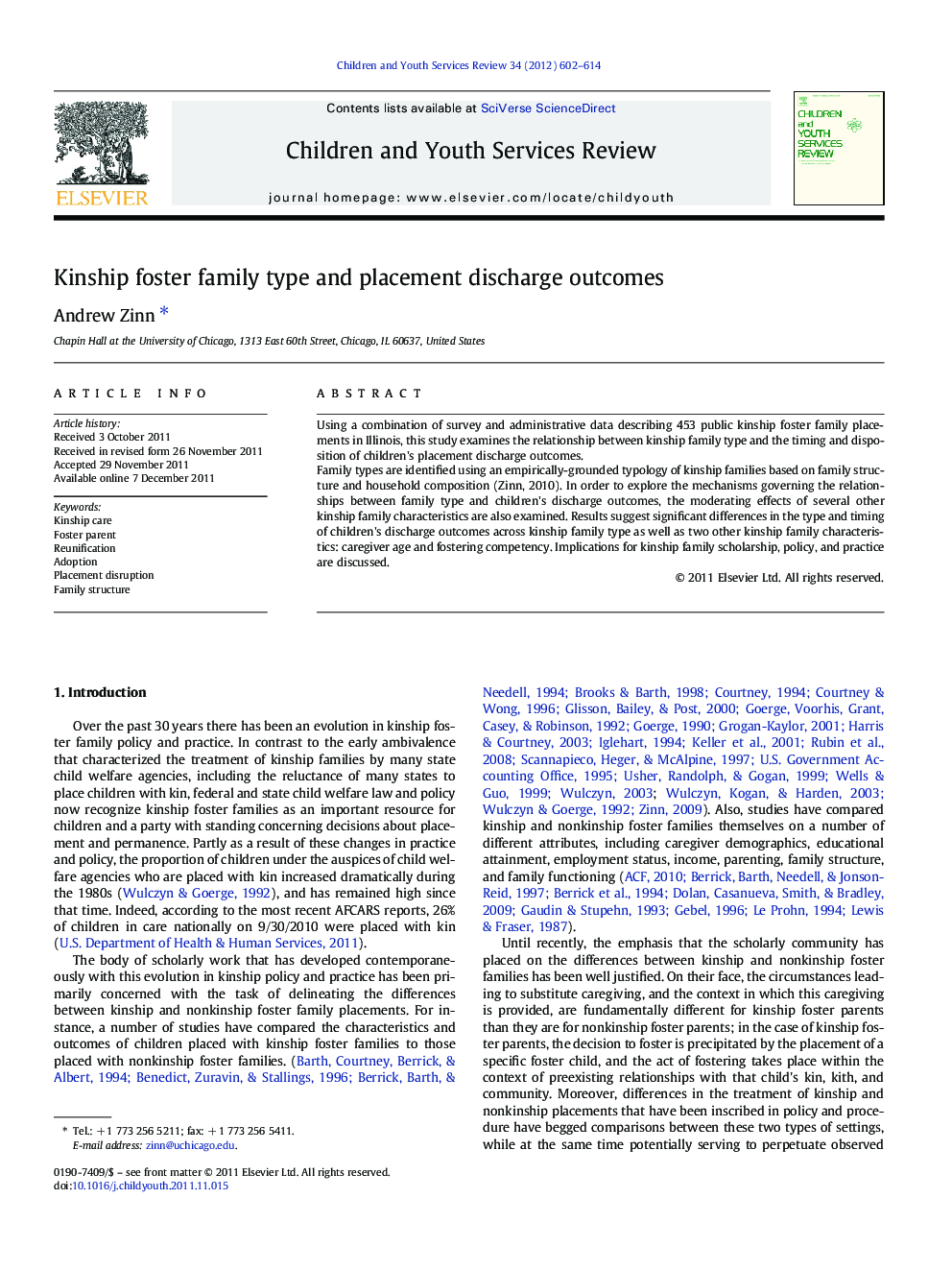| Article ID | Journal | Published Year | Pages | File Type |
|---|---|---|---|---|
| 346999 | Children and Youth Services Review | 2012 | 13 Pages |
Using a combination of survey and administrative data describing 453 public kinship foster family placements in Illinois, this study examines the relationship between kinship family type and the timing and disposition of children's placement discharge outcomes.Family types are identified using an empirically-grounded typology of kinship families based on family structure and household composition (Zinn, 2010). In order to explore the mechanisms governing the relationships between family type and children's discharge outcomes, the moderating effects of several other kinship family characteristics are also examined. Results suggest significant differences in the type and timing of children's discharge outcomes across kinship family type as well as two other kinship family characteristics: caregiver age and fostering competency. Implications for kinship family scholarship, policy, and practice are discussed.
► Children's placement discharge outcomes are compared across kinship family types. ► Kinship family types are defined using family structure and household composition. ► Placements with empty-nest grandparent families are more likely to yield an adoption. ► Placements with grandparents with non-foster children are less likely to disrupt. ► Caregiver age and fostering competency are predictive of discharge outcomes.
